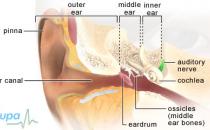Colic

About colic
Symptoms of colic
Causes of colic
Diagnosis of colic
Treatment of colic
About colic
Colic is a common condition in babies. As many as one in five babies have colic in the first few months of life. Colic affects boys and girls and babies who are breastfed and those who are bottle-fed equally.
It’s not known what causes colic, but it’s usually harmless and lasts for a few months before getting better on its own. However, it can be very upsetting for parents and carers.
Symptoms of colic
Colic usually starts when your baby is a few weeks old and the symptoms last for a few months. Most babies ‘grow out of it’ by the age of three or four months, or six months at the latest.
Your baby may cry for several hours a day and you might find it hard to soothe or comfort him or her. A baby with colic can cry at any time of the day, but you may find that it’s worse in the late afternoon or evening. Although colic isn't thought to be painful for your baby, he or she may look uncomfortable. Your baby may:
- arch his or her back
- draw his or her legs up to their tummy
- become stiff
- pass wind
- clench his or her fists
If your baby has colic, he or she should still feed well and gain weight. If your baby doesn't do this, see your health visitor or GP.
You may find the symptoms of colic very stressful to manage, especially if it’s your first child. It can be difficult to cope with the constant crying, or to comfort your baby, so it’s important to look after yourself, get support and to take a break if things get on top of you.
Causes of colic
The exact reasons why your baby may develop colic aren't fully understood at present. However, there are a number of possible causes. The main ones are listed below.
- If you smoke during pregnancy, your baby may be more likely to get colic.
- Your baby may be experiencing painful indigestion or wind.
- Your baby may be sensitive to either lactose in breast milk or cow’s milk protein in formula milk. This can cause intolerance while your baby’s digestive system is developing during the first few months of life.
- Your baby may be more sensitive than other babies. This can mean that he or she is more sensitive to their environment or to being over stimulated.
Diagnosis of colic
If you’re worried about your baby’s crying you should get advice from your GP or health visitor, to make sure there isn’t a more serious health problem.
Before you see your GP, think about anything else that may be causing your baby to cry. Some of the main causes of crying are listed below.
- Wind. If you’re bottle-feeding your baby, sit him or her upright when you feed him or her. This cuts down the amount of air your baby takes in during feeds and may help to prevent wind. Your health visitor will be able to show you how to do this. Burping your baby will also help to get rid of wind.
- Hunger or thirst. Talk to your health visitor about whether your baby is feeding enough.
- Temperature. Check whether your baby is too hot or too cold. Keep the room temperature at 18°C if possible.
- Itchiness. Itchy clothes, labels or eczema can irritate your baby.
- Pain, such as nappy rash.
If your baby continues to cry, see your GP or health visitor. He or she will examine your baby and ask you about your baby’s behaviour. This will help to rule out other illnesses or causes of crying.
Doctors usually make a diagnosis of colic if your baby cries for more than three hours a day, for more than three days a week, for a period of more than three weeks.
Treatment of colic
There is no single treatment for colic that works for every baby. Different babies are comforted in different ways, and you may need to try a few methods to see what works best. In time, colic will stop and your baby’s crying will get better after a few months.
Self-help
You may find the following techniques helpful to soothe your baby.
- Hold your baby and walk or dance around with him or her. Babies need lots of contact and like the movement.
- Carry your baby in a front sling or backpack.
- Try using a baby swing.
- Sing softly, play music and talk to your baby.
- You may want to change your baby’s position by propping him or her up, so he or she can look around more.
- Try to soothe your baby with continuous noise or vibrations, for example the noise from a vacuum cleaner or washing machine, or from running water.
- Take your baby for a drive in the car or a walk in the buggy.
- Give your baby a dummy to suck on.
- Bathe your baby – the warm water may be comforting.
Your GP or health visitor may also suggest changing your diet or your baby’s diet. This may help if your baby is sensitive to lactose or to cow’s milk protein.
If you’re breastfeeding your baby you can try cutting out caffeinated drinks or cow’s milk and dairy foods for a week, to see whether your baby’s symptoms get better.
If you’re bottle-feeding your baby, your GP or health visitor may suggest changing the size of the hole in the teat, as too small a teat can cause your baby to swallow air. Your GP or health visitor may also recommend changing to a different formula, called a hypoallergenic formula, for one week. If your baby’s symptoms don’t get better, you can go back to your usual formula milk.
You can also try adding lactase drops to milk during feeds. Lactase breaks down lactose and may help to improve your baby’s symptoms. You can add lactase drops to bottle feeds of formula or breast milk. If you’re breastfeeding, add the drops to a small amount of expressed milk and give it to your baby using a sterilised teaspoon. Try this for one week to see if the symptoms get better. You can buy lactase from a pharmacy. Always read the patient information leaflet and if you have any questions, ask your pharmacist for advice.
Don't cut out any foods from your diet without speaking to your GP or health visitor first.
Medicines
A medicine called simeticone may help to improve the symptoms of colic, but doctors don’t know how well it works. Simeticone is given as a liquid, which you add to milk. It’s used to relieve trapped wind.
Try simeticone for one week to see if there is any improvement in your baby’s symptoms.
Complementary therapies
Some people believe that chiropractic spinal manipulation therapy or cranial osteopathy can help to relieve the symptoms of colic. However, there is little evidence that these treatments work.
Aromatherapy and tummy massage are also used as treatments for colic. However, there is also little evidence that these treatments work. Always ask the advice of a qualified practitioner as some aromatherapy, massage oils and complementary therapies can be harmful to babies.
How can I tell if my baby is crying because of colic?
I’m at the end of my tether with the crying. What can I do?
I'm breastfeeding – could my diet be causing my baby’s colic?
How can I tell if my baby is crying because of colic?
Answer
Babies cry for many reasons and sometimes it can be hard to know why. However, crying because of colic does sound different to regular crying. It’s usually furious and intense and may sound more urgent and uncomfortable to you than your baby’s usual crying. It usually starts in the late afternoon and evening and may carry on for hours.
Explanation
Your baby may cry for lots of reasons and it can sometimes be hard to know why he or she is crying, particularly if it’s your first baby. Babies may cry when they are tired, hungry or thirsty, too hot or too cold, or when they want to be comforted. You will soon get to know why your baby is crying.
Crying because of colic does sound different to regular crying. The volume and sound varies more than regular crying and has a higher pitch. Your baby’s cries might sound more urgent and irritating to you and can make you feel uncomfortable. Your baby’s face may be red and flushed and their crying will be furious. You may find that there is little or nothing that you can do to comfort them.
Babies with colic tend to cry more in the late afternoon or evening and they may cry for hours at a time.
A change in your baby’s crying can also be a sign of health problems, some of which can be serious. If you’re worried, see your GP or health visitor. If your baby’s cry becomes weak, high pitched and continuous and he or she has other symptoms such as a fever, rash or breathing problems, you should get medical help straight away.
I’m at the end of my tether with the crying. What can I do?
Answer
A crying baby can be very stressful and frustrating for you. There are many things that you can do that will help to soothe your baby. However, if you feel like you can’t cope it’s important to get help. Ask family and friends to give you a break and speak to your health visitor or GP.
Explanation
If your baby has colic the crying can be very stressful, frustrating and distressing for you. You may feel like there is nothing you can do to stop the crying and that your baby is inconsolable. It’s important to remember that this difficult time won’t last forever.
First check there isn’t a specific cause for your baby’s crying, such as being hungry or thirsty or needing a nappy change. If there doesn’t seem to be anything causing the crying and you’re feeling frustrated and upset because you can’t comfort your baby, leave him or her somewhere safe, such as their cot or pram, and go into another room for a few minutes to give yourself a break.
If you feel overwhelmed, ask your partner or a friend or relative to take over for a while, even for just an hour or two, so you can have a proper break from your baby’s crying. Go out and spend some time away from your baby. This will help you to feel calmer and more able to cope. When your baby is asleep it’s a good idea to sleep or rest as well.
Talk to your health visitor or your GP and ask for help. There are support groups and organisations for parents that can help you to cope and put you in touch with other parents who have problems with their baby’s crying.
I’m breastfeeding – could my diet be causing my baby’s colic?
Answer
If you're breastfeeding, there is a small chance that some of the foods you eat may cause your baby to develop colic. However, it’s important not to cut out foods from your diet without getting advice from your GP or health visitor.
Explanation
If your baby is breastfed, his or her colic may be caused by allergens from the foods that you eat. These pass from you to your baby in your breast milk.
Your GP or health visitor may suggest trying a hypoallergenic diet for a week to see whether your baby’s symptoms get better. This means cutting out cow’s milk and dairy foods such as cheese and yoghurt. If, at the end of one week, your baby’s symptoms have got better you can continue to cut out cow’s milk and dairy until your baby is older.
If you continue to cut out cow’s milk and dairy foods your GP will ask you to take a calcium supplement to make sure you’re getting all the nutrients you need.
You can also add lactase drops to breast milk. Lactase breaks down lactose in the body and can improve the symptoms of colic in some babies. You can express breast milk and feed your baby with a bottle with lactase drops added to it. You can also express a small amount of milk, add lactase drops to it, and feed it to your baby using a sterilised teaspoon.
Your GP or health visitor may also suggest cutting out foods such as eggs, wheat, nuts and caffeinated drinks for one week to see whether you baby’s symptoms get better. You may need advice from a dietician to help you do this. Don’t cut out any foods from your diet without speaking to your GP or health visitor first.
If your baby’s symptoms get better when you change your diet or add lactase to your breast milk it doesn’t mean that your baby is lactose intolerant or allergic to cow’s milk. These are rare conditions that affect very few babies with colic.
Further Information
-
CRY-SIS
0845 122 8669
www.cry-sis.org.uk
Sources
- Colic – infantile. Clinical Knowledge Summaries. www.cks.nhs.uk, published September 2007
- Infantile colic. BMJ Clinical Evidence. www.clinicalevidence.com, published February 2010
- Colic. eMedicine. www.emedicine.medscape.com, published October 2010
- Crying baby. National Childbirth Trust. www.nct.org.uk, published 2009
- Crying baby? A guide to coping. CRY-SIS. www.cry-sis.org.uk, accessed 18 January 2011
- Coping with crying. Emma’s Diary. www.emmasdiary.co.uk, accessed 20 January 2011
Related topics
- Breastfeeding
- Food allergy
Publication date: March 2011
















